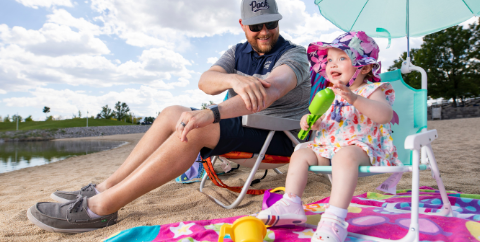Let’s Talk Sunscreen: Why are influencers crazy for Korean SPF?
09 September, 2025
Skincare and beauty influencers are TikTok have raved about Beauty of Joseon sunscreen and other Korean and European brands for their effectiveness and luxury feel compared to sunscreens sold in the U.S. – even by Korean brands. What gives?
Korean and European sunscreens use newer, advanced filter ingredients that offer broader UVA protection and better cosmetic feel—yet these ingredients haven’t been approved by the FDA despite some being available for years. Here's why the regulatory process is holding American sunscreen back, and what this means for consumers.
Sunscreens from Asia and Europe benefit from access to a wider array of UV filters, some of which block a higher percentage of UVA rays (important for cancer prevention and skin aging) and offer a more pleasant skin feel. Europe, for example, has approved over 30 UV filters, allowing for more effective broad-spectrum products, while the U.S. only allows 16. Korean and Japanese products also emphasize light, gentle textures and additional protection grading for UVA rays (PA+ through PA++++), making daily use much more appealing.
In the United States, sunscreens are regulated as over-the-counter drugs, not cosmetics—meaning new ingredients must undergo rigorous, expensive studies before getting approval. The FDA has not approved any new chemical UV filters since 1999, despite many globally used ingredients being proven safe and effective through decades of use elsewhere. Most commonly, American sunscreens rely on older ingredients like avobenzone or oxybenzone, which have limitations in UVA coverage and stability. Advanced filters popular abroad (Tinosorb S, Uvinul A Plus, Bemotrizinol, and Mexoryl XL) remain unavailable in U.S. products.
Why This Matters
Better UVA protection reduces not just sunburn, but the long-term risk of cancer and photoaging. Many dermatologists and advocates say the FDA’s slow process puts Americans at a disadvantage, forcing them to rely on imported products or older technology while skin cancer rates climb. Recent legislative attempts, like the Sunscreen Innovation Act, sought to speed up the approval process, but bottlenecks remain and progress has stalled.
Where does this leave us? With with fewer—and arguably less effective—choices, despite clear evidence that newer filters are safe and offer better coverage. That’s not to say we shouldn’t be using the choices that we have. Aside from avoiding daylight, applying sunscreen is one of the most effective ways to prevent skin cancer.
However, until the FDA modernizes its approach, U.S. sunscreen innovation will lag behind Korea, Europe, and Japan—making it all the more important to advocate for regulatory change and emphasize robust, broad-spectrum protection.
You May Also Like

What the FDA’s bemotrizinol proposal means for Nevada
12.23.2025
Nevada’s sun-soaked skies are part of what makes our state beautiful — and what makes sun protection essential.

What the FDA’s bemotrizinol proposal means for Nevada
12.23.2025
Nevada’s sun-soaked skies are part of what makes our state beautiful — and what makes sun protection essential.

What the FDA’s bemotrizinol proposal means for Nevada
12.23.2025
Nevada’s sun-soaked skies are part of what makes our state beautiful — and what makes sun protection essential.